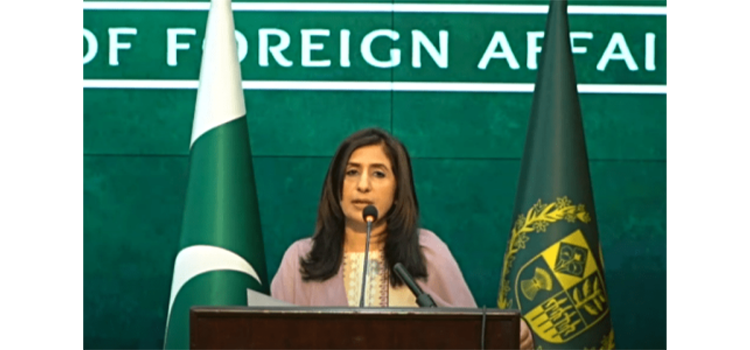Pakistan on Wednesday expressed solidarity with the people of Bangladesh and called for a “peaceful and swift return to normalcy” following the ousting of former Prime Minister Sheikh Hasina amid deadly protests.
“The government and people of Pakistan stand in solidarity with the people of Bangladesh, sincerely hoping for a peaceful and swift return to normalcy,” the Foreign Office (FO) stated. “We are confident that the resilient spirit and unity of the Bangladeshi people will lead them towards a harmonious future.”
The upheaval in Bangladesh led to the resignation and departure of Hasina after widespread protests against public sector job quotas, perceived as favouritism towards allies of her Awami League party. Over 400 people have died since July as security forces attempted to suppress the unrest.
Caretaker government formation
In response to the crisis, a caretaker government is expected to be established under Nobel laureate Muhammad Yunus, following requests from student protest leaders. The army, which had turned against Hasina, announced the formation of an interim government to halt the violence. General Wakeruz Zaman, Bangladesh’s army chief, declared, “It is time to stop the violence,” as the military took control on Monday.
Political developments
President Mohammed Shahabuddin dissolved parliament on Tuesday, meeting a key demand from student leaders and the major opposition Bangladesh National Party (BNP), which has called for elections within three months. BNP chairperson and former Prime Minister Begum Khaleda Zia was also released from house arrest.
Despite the turmoil, Dhaka’s streets were largely peaceful on Tuesday, with traffic resuming and shops reopening. However, government offices remained closed. The violence on Monday, which resulted in over 100 deaths, marked the deadliest day since the protests began in early July. An additional 10 people were killed on Tuesday, bringing the total death toll to at least 432, according to an AFP tally based on information from police, government officials, and hospital doctors.
Minority groups targeted
The Bangladesh Hindu Buddhist Christian Unity Council (BHBCUC) reported that 200-300 homes and businesses, predominantly owned by Hindus, had been vandalised since Monday, and 15-20 Hindu temples were damaged. Student leaders urged restraint to prevent undermining their movement, acknowledging reports of attacks on minority groups in the predominantly Muslim country.
International reactions
India’s foreign minister S. Jaishankar emphasised the need for dialogue and restraint, expressing deep concern until law and order are restored. India assured Hasina of its support and urged a peaceful resolution. The situation, particularly the attacks on minorities, was described as “particularly worrying” by Indian officials.
UN Secretary-General Antonio Guterres underscored the importance of a “peaceful, orderly and democratic transition,” echoed by European Union foreign policy chief Josep Borrell. Former colonial ruler Britain and the United States also called for calm.









